If you’re following a vegan diet, you might be wondering how to make sure you’re getting enough protein.
Meat and dairy products are often considered the main protein sources, but there are plenty of vegan options available. In fact, many plant-based protein sources are often overlooked.
In this article, we’ll cover the 10 best plant-based protein sources, including some that may surprise you, to help you diversify your protein options and reduce your consumption of animal products.
What Are Plant-Based Proteins?
Plant-based proteins are derived from a variety of sources, such as legumes, grains, nuts, seeds, and vegetables.
They’re a great source of many essential amino acids, and macronutrients, and are important to achieve a complete protein profile.
Plant-based proteins are also lower in saturated fats and higher in fiber, which helps with digestive health.
They also have phytonutrients with anti-inflammatory effects , which can lower the risk of chronic conditions such as heart disease and cancer.
-
Some great plant-based protein sources are lentils, chickpeas, quinoa, tofu, nuts, seeds, spinach, and kale.
Are plant-based proteins healthy?
Research shows that replacing animal-based proteins with plant-based proteins leads to improved bowel health, lower cholesterol levels, and reduced risk of heart disease, diabetes, and some cancers.
Plant-based proteins contain important fibers, antioxidants, vitamins, and minerals that benefit overall health.
Studies also indicate that vegetarian diets are associated with lower BMI and a lower prevalence of obesity in adults and children.
According to the American Heart Association, plant-based diets and protein can lower the risk of heart disease, high blood pressure, and stroke.
In addition to the health benefits, plant-based proteins also help with weight loss and weight management.
They are typically lower in calories and saturated fats compared to animal proteins, making them a great choice for those looking to maintain a healthy weight.
Plant proteins, such as those found in brown rice, are also high in healthy fats, such as omega-3 fatty acids, which provide various health benefits, including improved brain function and reduced inflammation.
How to get enough protein on a plant-based diet
Getting enough protein on a plant-based diet is entirely possible with a little planning. Here are a few tips to help you meet your protein needs:
-
Include high-protein plant-based foods in your meals, such as quinoa, lentils, tempeh, and beans.
-
Blend plant-based protein powders, like hemp protein, into smoothies, oats, or baked goods.
-
Prepare overnight protein oats or warm oatmeal you can consume easily.
-
Use tempeh or tofu as a high-protein alternative to meat
-
Track your protein intake with calorie-tracking apps
There are plenty of quick and easy-to-make meals that are high in plant-based protein and our favorite ones are:
What to avoid in plant-based protein
It’s crucial to understand the ingredients inside your protein and how they can affect your health. Here are a few things to avoid when choosing a plant-based protein:
-
Added sugars and artificial sweeteners
-
Artificial food ingredients like fillers and other additives
-
Ingredients that trigger food sensitivities and allergies
-
Low amount of added fibers like inulin
1. Chia Seeds
Chia seeds are a great source of high protein plant-based nutrition, packed with omega-3 fatty acids and fiber.
They provide essential amino acids, making them a complete protein source, and can be easily blended with smoothies, yogurt, or other baked goods, like Banana & Chia Sushi.
These seeds contain 5g of protein and 10g of fiber per ounce (28g) , and are filled with iron, calcium, selenium, and magnesium, as well as omega-3 fatty acids and antioxidants.
Some studies show that consuming chia seeds decreases the risk of heart disease, due to it’s omega-3 fatty acid, ALA , composition.
Chia seeds provide various health benefits, and the word “chia” literally means strong.
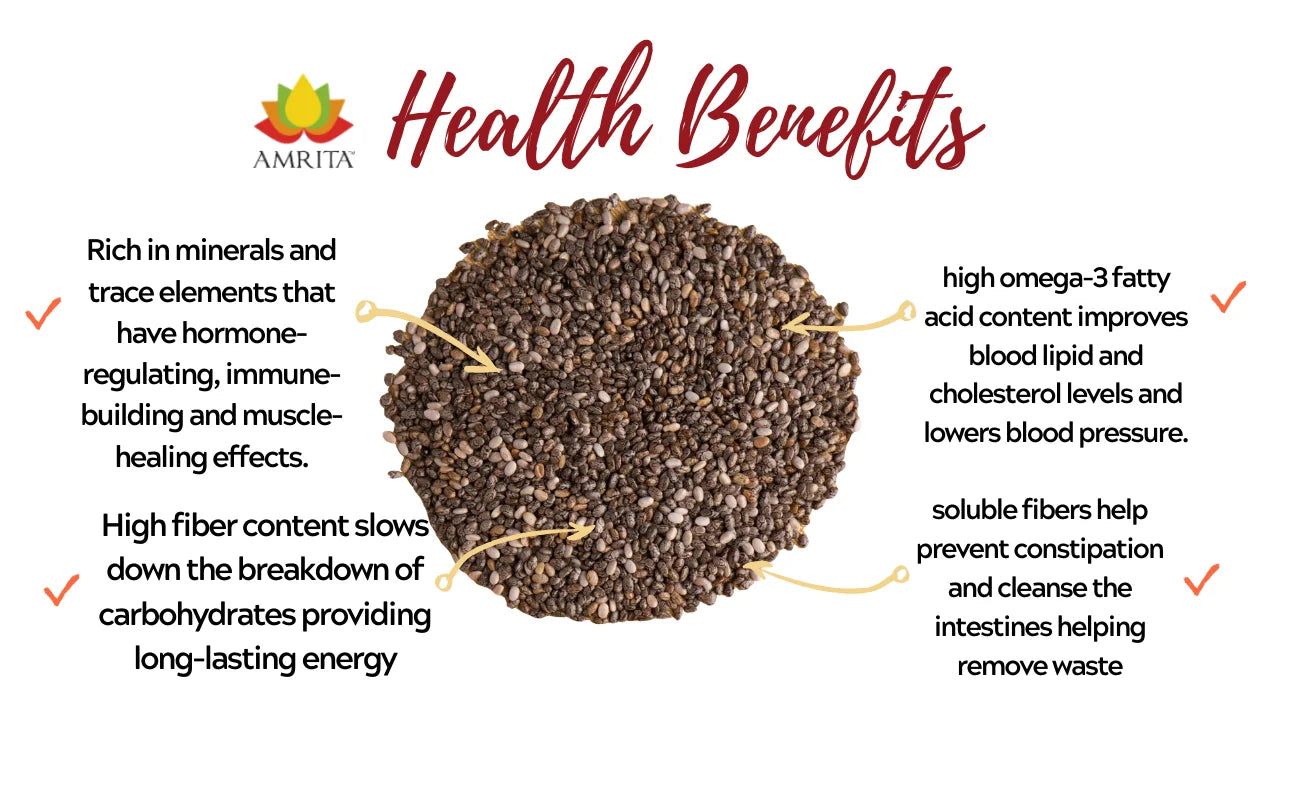
2. Quinoa
Quinoa is a perfect ‘complete protein’. It has a large amount of essential amino acids and contains 8g of protein and 5g of fiber per 1 cup .
A study from Food Frontiers suggests that quinoa’s bioactive compounds have anti-inflammatory and antioxidative effects which protect cellular health and prevent certain types of cancer – such as liver and cervical cancer.
Another study from Nutrients indicates that eating quinoa can be a preventive measure against type 2 diabetes and prevent a post-meal glucose spike.
Quinoa provides multiple health benefits , and it’s quick and easy to make puffed quinoa at home .
You can also find quinoa in protein bars, like Amrita’s dark chocolate quinoa high-protein bar.
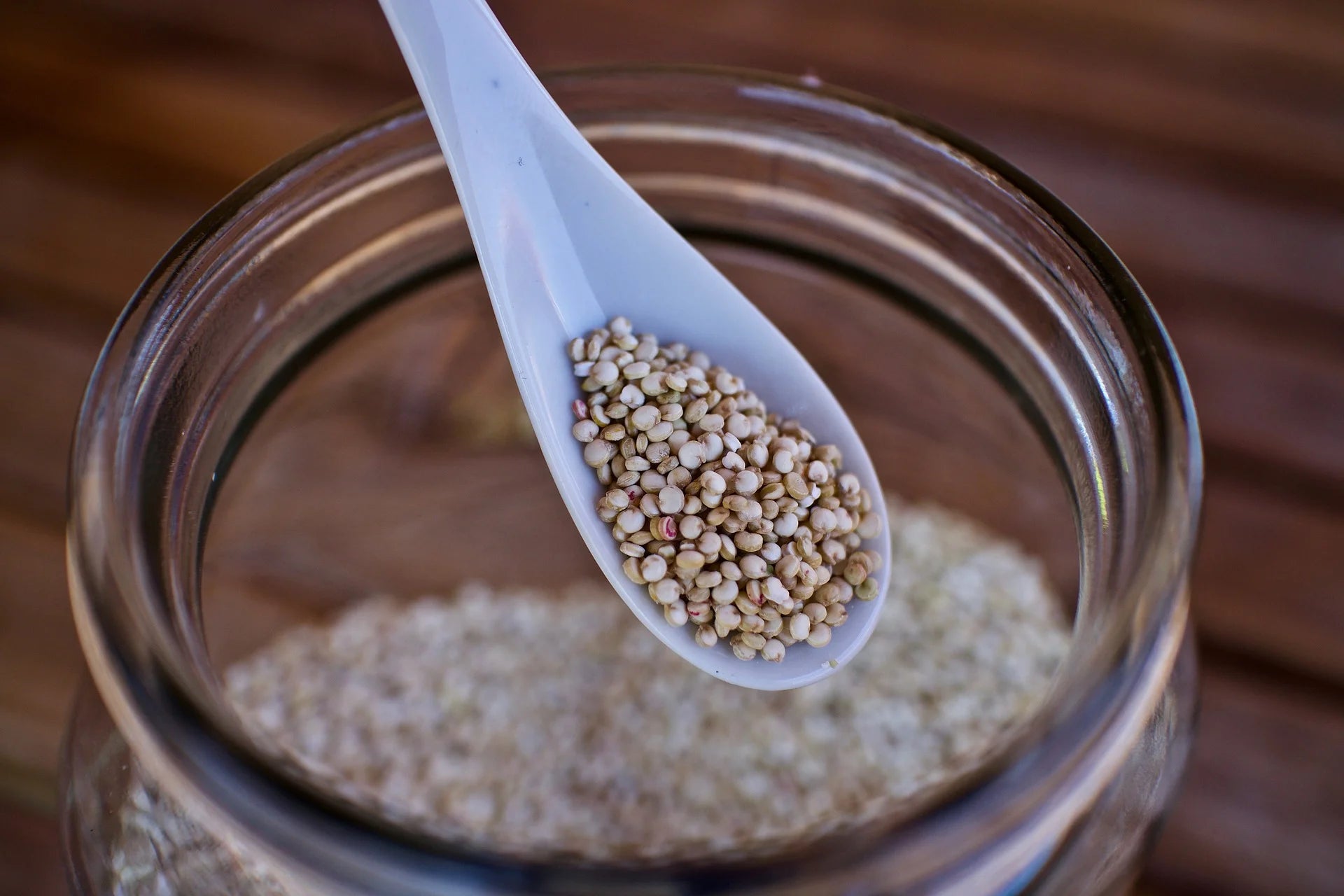
3. Tempeh
Tempeh is high in protein, vitamin B12, and minerals, and contains an impressive amount of iron, calcium, manganese, and phosphorus.
A 3-ounce (84-gram) serving of tempeh contains 15 grams of protein and 162 calories , making it a perfect weight management food.
A great vegetarian food that can be sauteed, baked, or eaten crumbled on salads, and is one of the best foods that can improve gut health .
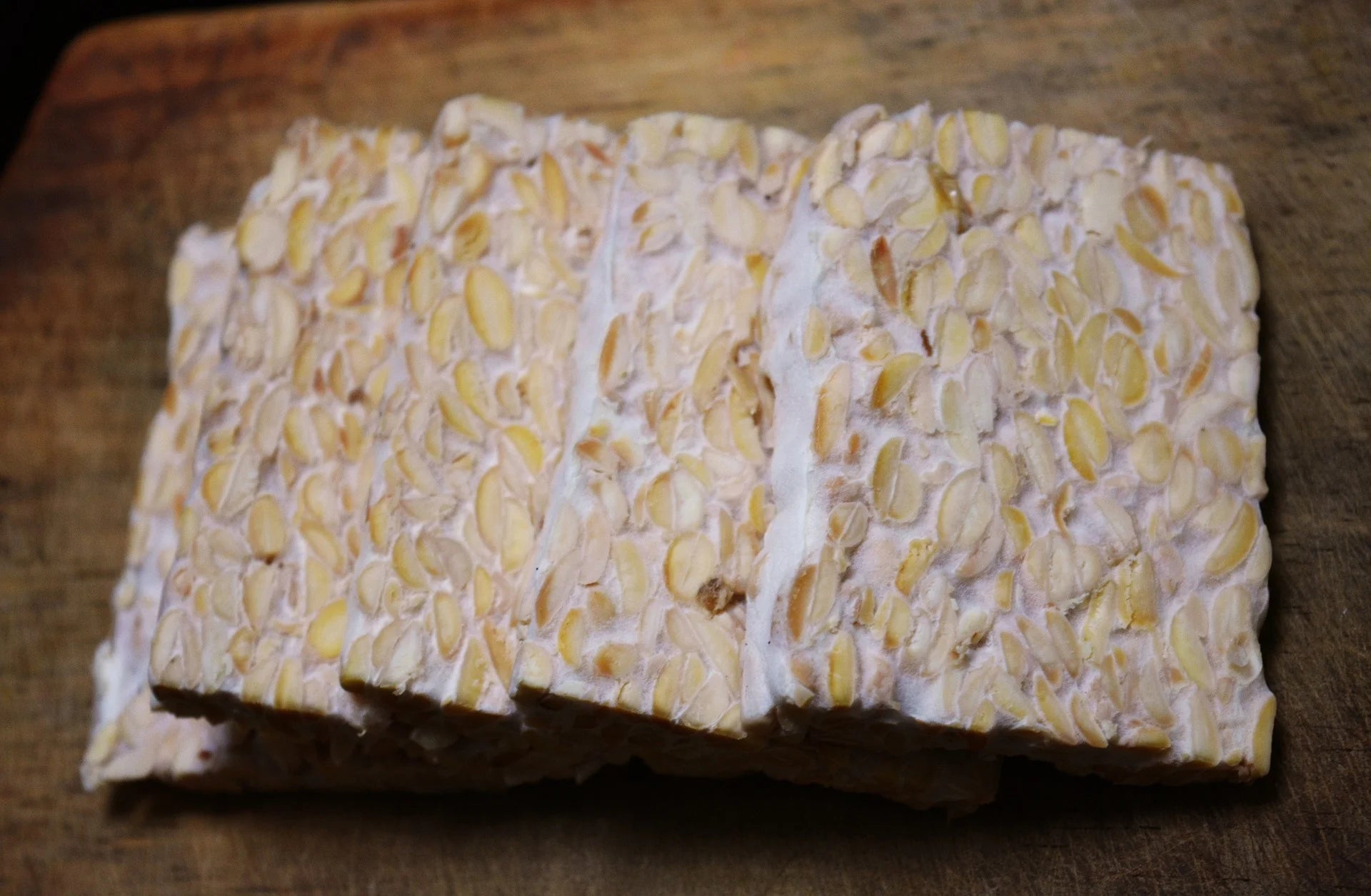
4. Spirulina
This blue-green algae provides 8g of complete protein per 2tbs (14g) serving.
Some studies show that spirulina may be beneficial in protecting against cancer, slowing down or stopping the growth of cancer cells in the body.
It is rich in vitamins, minerals, amino acids, and antioxidants that have anti-inflammatory and immune-boosting qualities.
It can easily be paired with other plant-based foods in meals like Avocado & Spirulina Dip or Tofu and Spirulina Burger Patties .
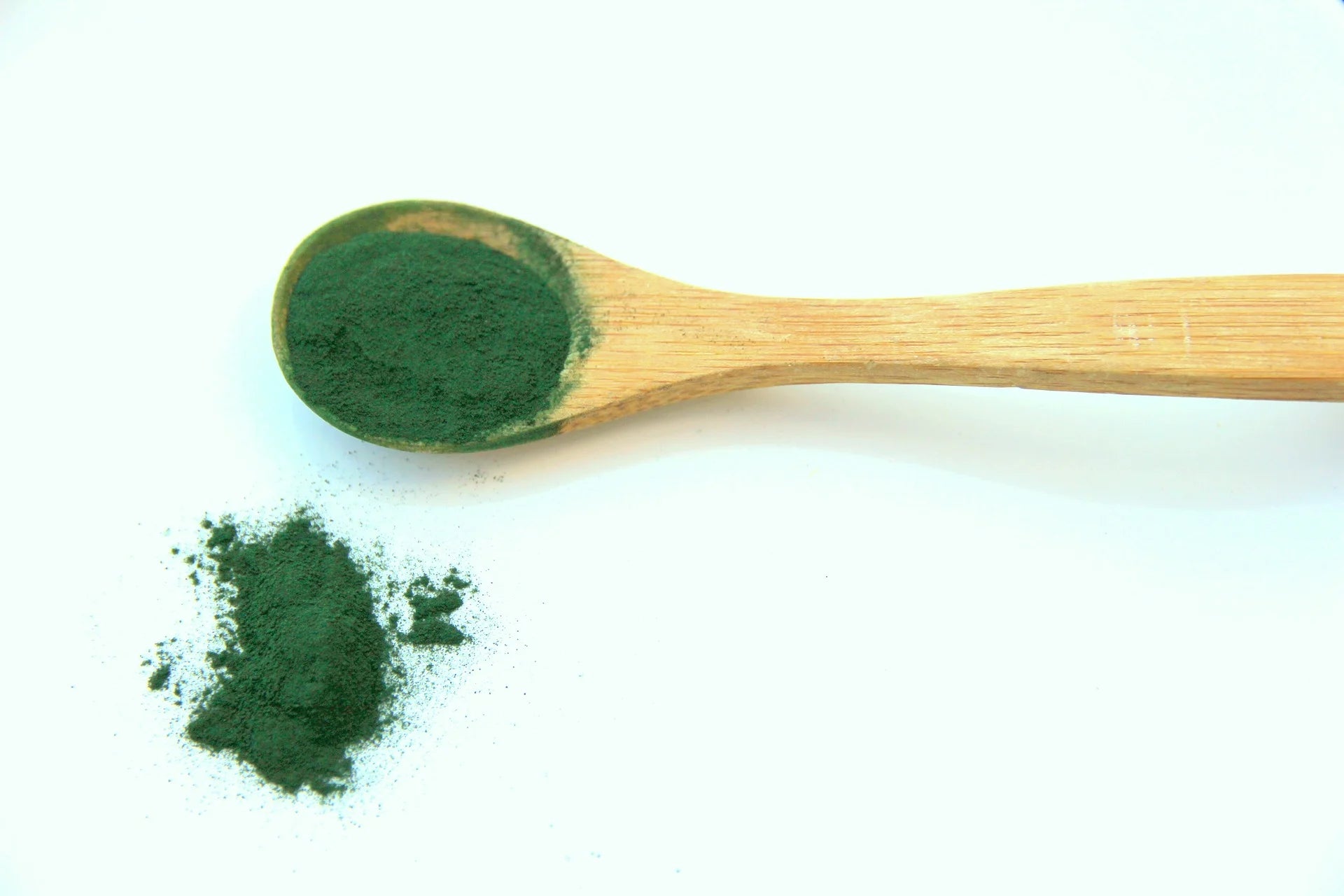
5. Peas
Green peas are small, spherical seeds that come from pods and have been consumed for a large part of human history.
They are a part of the legume family, meaning they fit in with lentils, chickpeas, beans, and peanuts.
Green peas contain a significant amount of fiber, thiamine, folate, manganese, and vitamin C and K.
They’re a great source of nutrients and help reduce inflammation and lower the risk of chronic conditions, such as diabetes, arthritis, and heart disease.
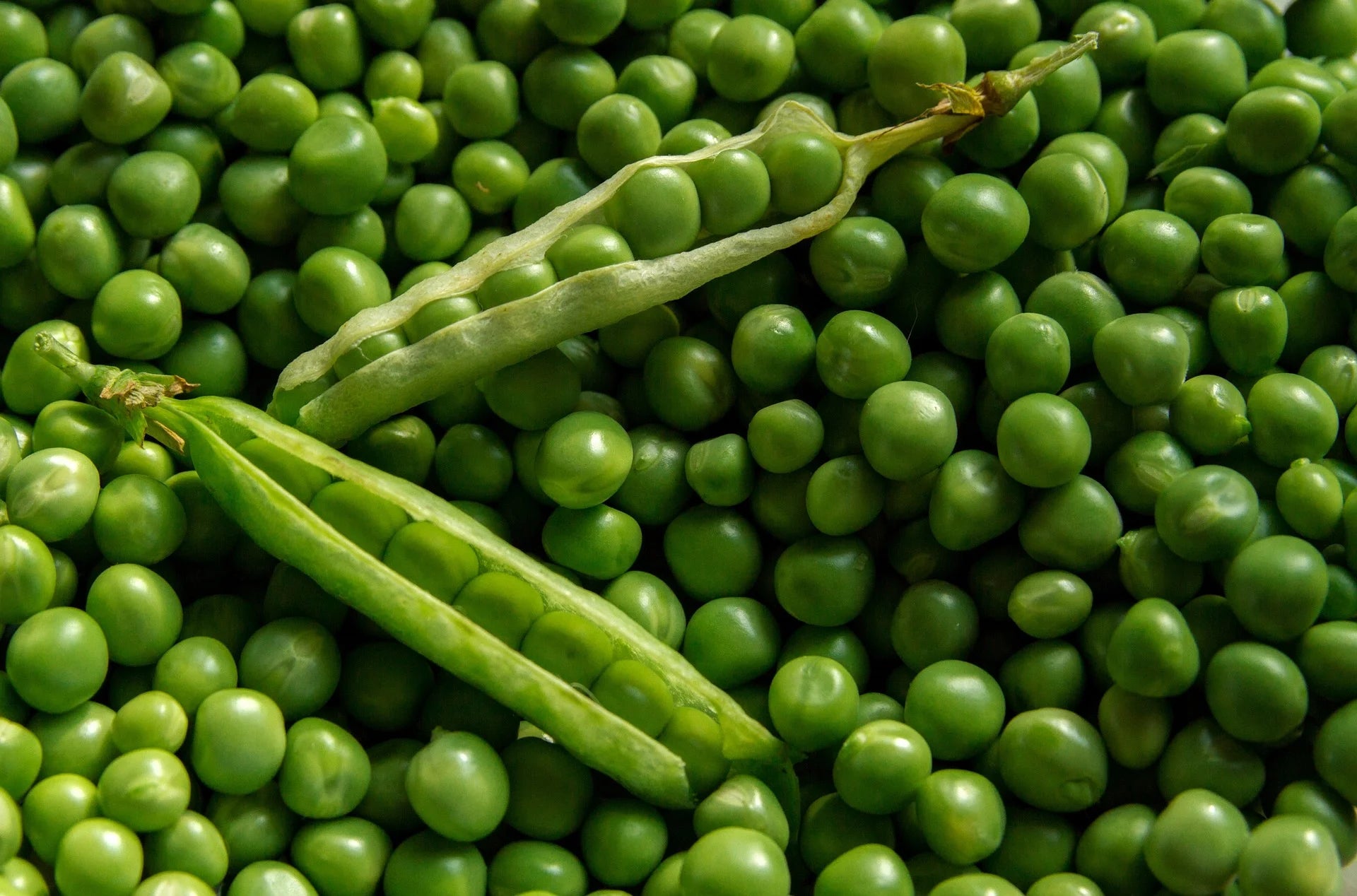
6. Hemp Seeds
Hemp seeds are a nutritious plant-based protein source that provides various health benefits – including reduced risk of heart disease, benefits to skin disorders, and reduced symptoms of PMS and menopause.
They come from the Cannabis sativa plant, and are often frowned upon for belonging to the same family as the cannabis plant.
Hemp seeds contain 31 g of protein per 100g serving,
You’ll likely come across various oatmeal dishes that include hemp seeds. One of our favorites is the blueberry hemp protein oats.
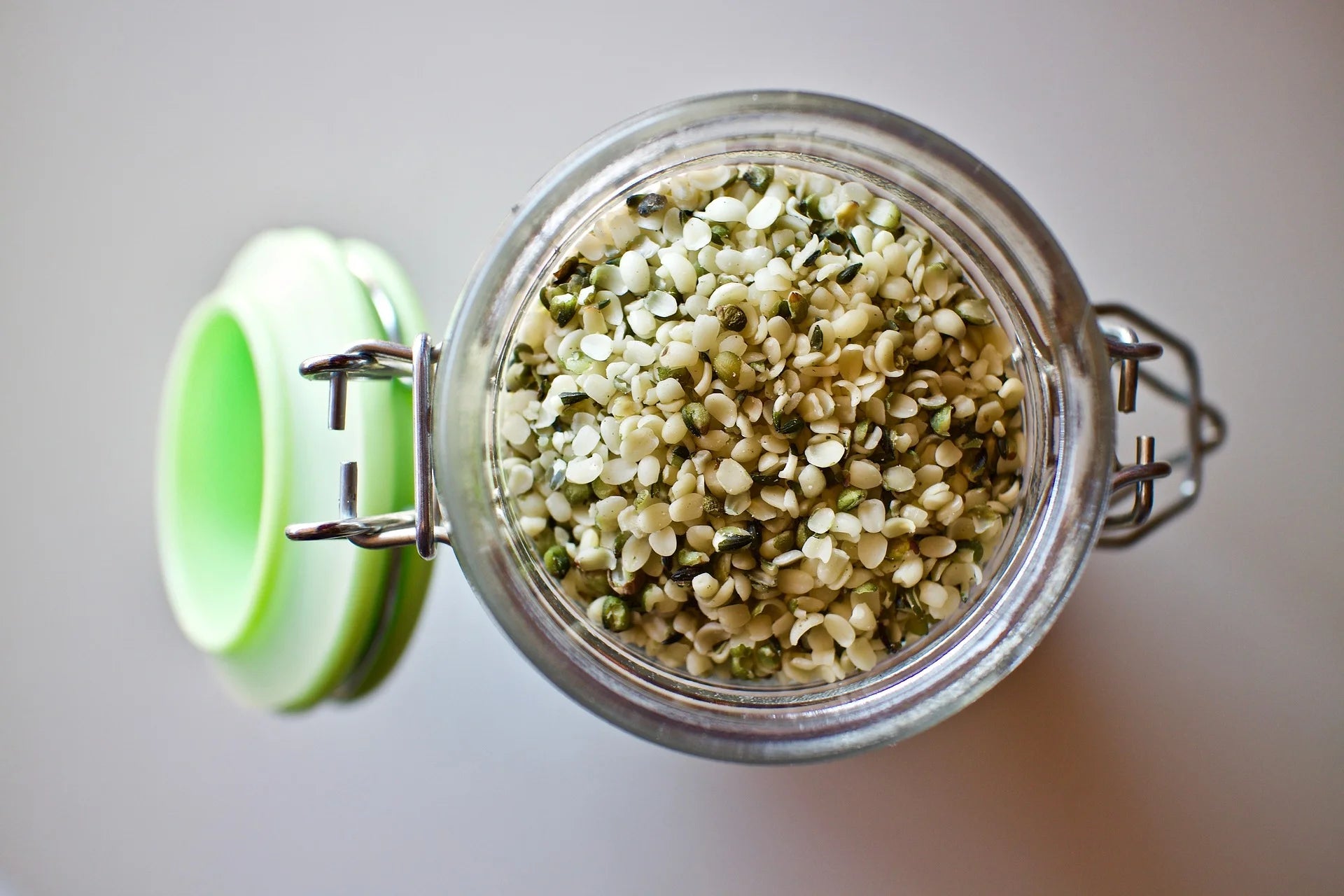
7. Lentils
Lentils are a great source of protein, fiber, vitamin B, folate, iron, and potassium.
The fiber that lentils contain has been shown to feed the good bacteria in your body, which promotes a healthier gut.
They’re quick and easy to prepare and have a low cost which makes them an easily accessible high-quality protein.
There are many quick and delicious meals you can make with lentils, like Vegan Thai Red Curry Lentils
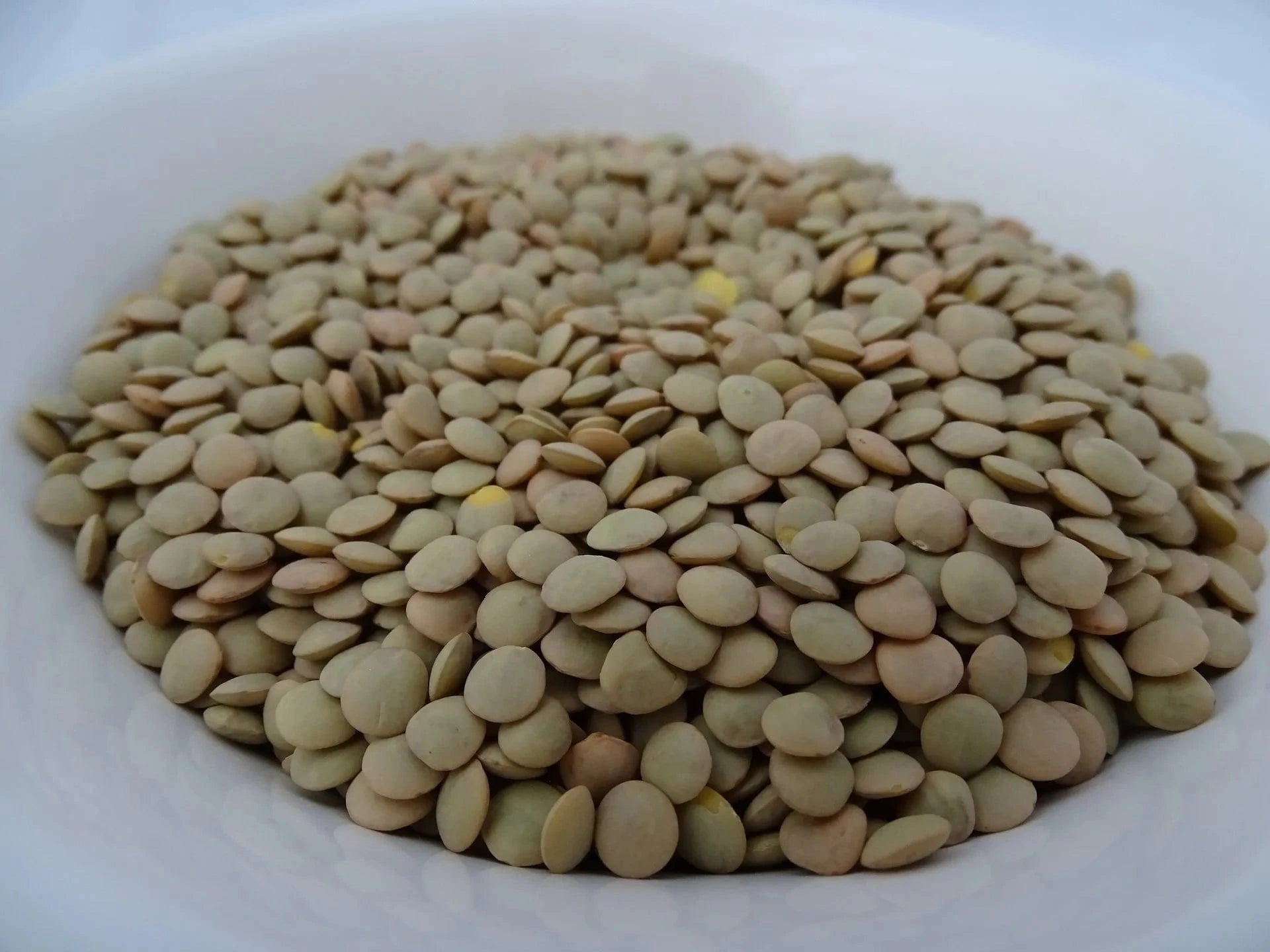
8. Seitan
Seitan, a high-protein meat alternative made from wheat gluten is an ideal food for low-carb diets.
Thanks to its high protein, iron, selenium, and vitamin B content, it supports the healthy growth of muscles, blood cells, and DNA in the body.
A big perk for seitan is that it’s free of soy, unlike tempeh, tofu, and other plant-based foods.
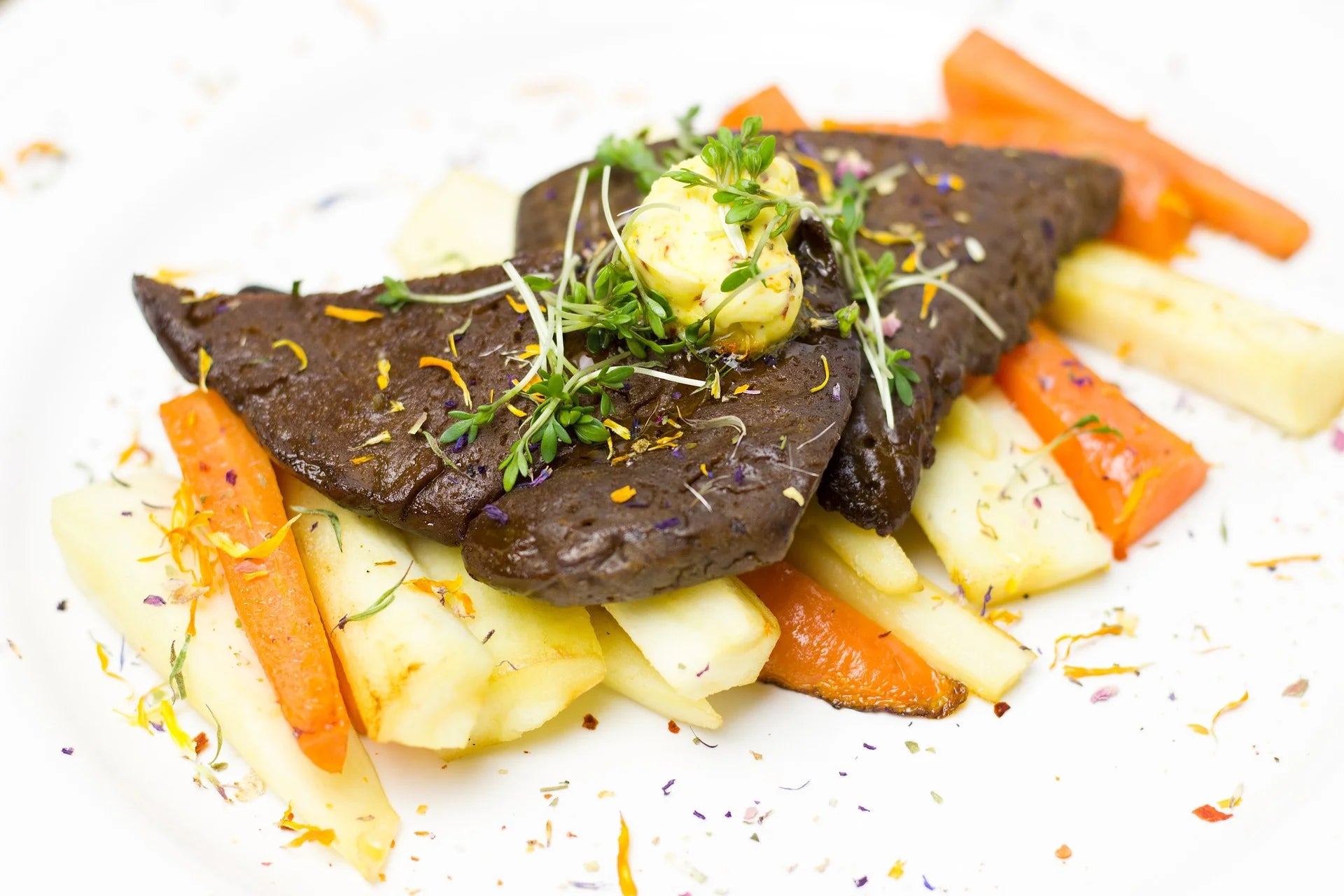
9. Beans
Beans, such as black beans, kidney beans, chickpeas, and lentils, provide approximately 15 grams of protein per cup.
They are the seeds from flowering plants and are in the family of legumes.
There are various types of beans. but all of them share similar benefits , which are improved heart health, reduced risk of cancer, and help with stabilizing blood glucose levels.
They can be used in soups, stews, salads, and dips and have a great nutritional profile which includes iron, magnesium, and potassium.
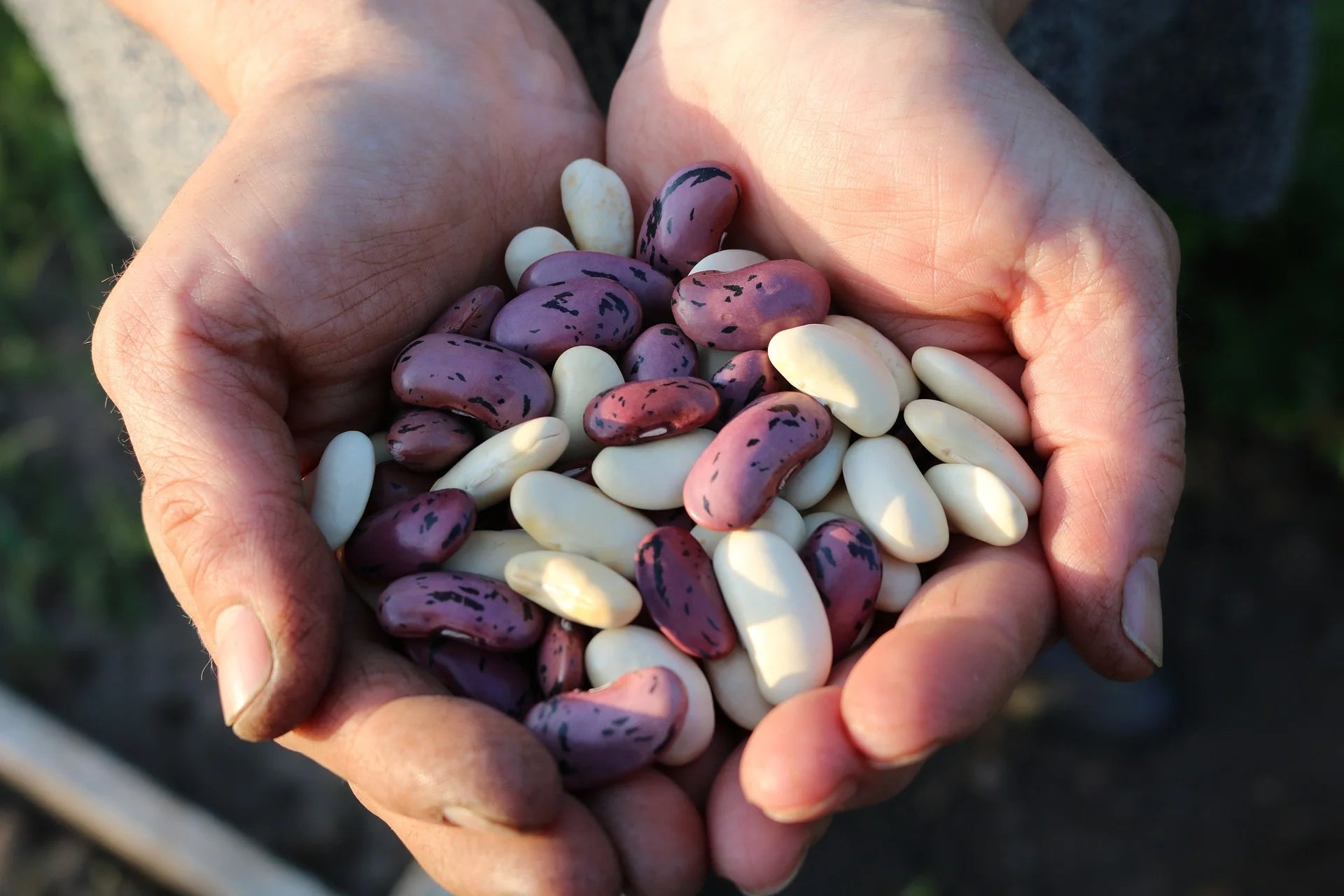
10. Soy Milk
Soy milk is made from soybeans and is filled with vitamins, minerals, calcium, vitamin D, and vitamin B12.
It offers 8 grams of protein per cup, and regularly drinking it may improve your cholesterol levels, reduce blood pressure, and support weight loss.
It can be used as an alternative to cow milk in a variety of recipes .
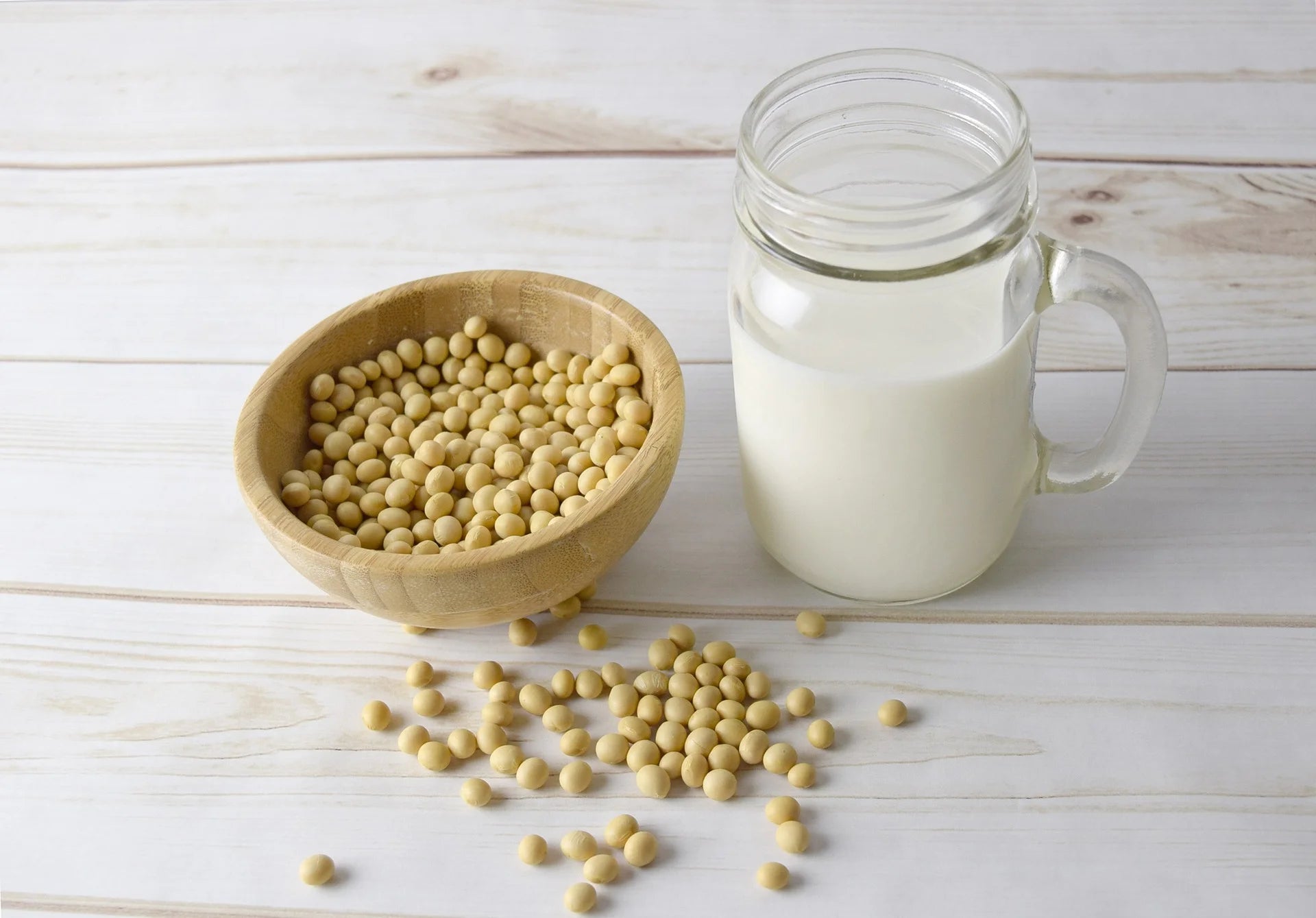
Frequently Asked Questions
How can a vegan get 100g of protein a day?
To meet the daily protein goal of 100g, vegans can add new protein sources to their diet – lentils, chickpeas, tofu, tempeh, quinoa, and seitan are excellent options.
Other options, such as plant-based protein bars or shakes are quick and easy snacks that can help you reach the 100g protein goal faster.
Can you get all your protein from plants?
Yes, it’s possible to get all your protein from plants. Plant-based sources like beans, lentils, nuts, seeds, and soy products can provide you with the necessary protein.
Your diet needs to vary to make sure you’re getting all the nutrients your body needs.
Which plant-based milk has the most protein?
Soy milk is the plant-based milk with the highest protein content. A cup of unsweetened soy milk has approximately 8 grams of protein. Soy milk also provides all the essential amino acids your body needs.
What happens if you eat too much protein?
Consuming too much protein can lead to dehydration, strain on the kidneys, digestive issues like bloating and constipation, nausea, and an increased risk of diseases such as heart disease and osteoporosis.
It’s important to understand that a balanced diet is crucial for overall health, and relying solely on protein sources for nutrition is not recommended.
A balanced diet includes a variety of foods from all food groups, including fruits, vegetables, whole grains, healthy fats, and lean proteins.
How to get 40 grams of protein without meat?
To get 40 grams of protein without meat, you need to add plant-based sources like beans, lentils, quinoa, and tofu to your diet.
Nuts and seeds such as almonds, chia seeds, and hemp seeds are also great options. Greek yogurt and cottage cheese provide low-meat, high-protein alternatives.
Can I eat eggs on a plant-based diet?
Eggs are not considered plant-based as they come from animals. For a fully plant-based diet, eggs are typically excluded. Plant-based diets focus on foods derived from plants like fruits, vegetables, grains, and legumes.
Conclusion
Plant-based protein sources can help you achieve a healthy diet and prevent heart disease.
To get enough protein while following a plant-based vegetarian diet, follow the advice we’ve covered in this article and consider adding these plant-based protein sources to your diet.
And if you’re looking for a quick, tasty, and healthy snack, check out our plant-based protein bars that come in 7 delicious flavors.

